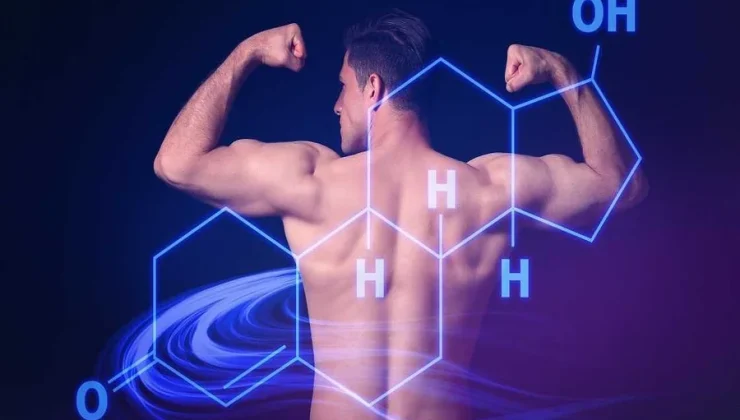Muscle Mass and It’s Connection to Male Hormones

Hormones are a key part of building and maintaining muscle mass. Among the hormones involved in this process are testosterone and human growth hormone. Both are important, and each has a very specific function in the process of building and maintaining muscle. While the human body generally does an amazing job of doing what it is supposed to do, fluctuating hormone levels can lead to frustrating health concerns. Many common signs of aging, such as thinning bones and loss of muscle mass, are due to lowered hormone levels that everyone experiences as they age.
Testosterone
The primary male sex hormone, testosterone, is produced by both the testes and the adrenal glands. Testosterone levels peak in early adulthood and lower naturally as part of the aging process.
Testosterone is responsible for a range of activities in the body. These include:
- Muscle growth and strength
- Distribution of fat
- Maintaining energy levels
- Bone density
- Mood and motivation
When testosterone levels drop, you feel the effects throughout the entire body.
Human Growth Hormone
Human growth hormone, or HGH, is important for tissue growth, which supports muscle growth and mass retention. HGH is produced by the pituitary gland.
The naturally occurring decrease in testosterone and HGH, which is a normal part of the aging process, can lead to a loss of muscle mass as well as other unpleasant signs of aging. TRT is aimed at reducing the physical and mental effects of decreased testosterone levels.
The Effect of Testosterone on Muscle Mass
Testosterone is important for building and maintaining muscle mass in a few different ways. The hormone encourages muscle protein synthesis and also helps muscle fibers recover following workouts. The recovery process is when muscle growth occurs.
Someone with healthy levels of testosterone will be able to build lean muscle, improve workout performance, recover quickly from hard exercise, and sleep well to aid recovery as long as other aspects of their training program are dialed in.
Signs that testosterone levels are low include struggling to complete workouts, not seeing results from a structured training program, weight gain, low energy, depression, and decreased libido.
What To Do About Low Testosterone Levels
Testosterone replacement therapy, or TRT, is a medically supervised way of boosting testosterone levels. For individuals with low testosterone, TRT can boost energy, allow the body to better recover from exercise, help boost muscle mass, and restore libido.
Testosterone Side Effects
TRT treatment can cause different problems (testosterone side effects) in some individuals. Risks associated with TRT include hair loss, acne, mood swings, reduced sperm count, and cardiovascular issues. Working with a healthcare professional allows you to weigh the benefits and drawbacks of TRT and decide on a treatment plan that works best for you.
Natural Ways to Boost Testosterone
If you aren’t ready to commit to TRT, there are several things you can do to boost testosterone levels naturally.
Resistance training, in particular lifts that work the whole body, such as squats and deadlifts, supports testosterone production and muscle growth. High-intensity interval training, or HIIT, temporarily boosts testosterone levels.
Lifestyle issues can have a significant effect on testosterone levels. Keep an eye on your diet, making sure you eat enough protein to allow your body to repair muscles, which is necessary for muscle growth. Healthy fats, such as fatty fish, nuts, and olive oil, are important for hormone production.
Alcohol is fine in small amounts, but excessive use not only lowers testosterone but often interferes with sleep. Sleep is important for testosterone because that is when most testosterone production occurs. Aim for at least 7 hours of quality sleep each night.
Another key to good sleep is managing stress. Managing stress is also important because a low-stress lifestyle equals low cortisol. Excessive cortisol levels interfere with testosterone production.
There are a variety of ways you can naturally support healthy testosterone levels. Exercise, diet, and sleep are all keys to a healthy lifestyle, in addition to the benefits they provide to hormone regulation. If, after spending time building a healthy lifestyle, you aren’t satisfied with the results, get in touch with an experienced TRT healthcare provider to discuss your options.








